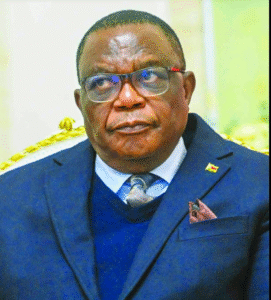ZIMBABWE’S FUTURE IN DANGER AS CORRUPTION AND HUMAN RIGHTS ABUSES GROW WORSE

Zimbabwe is in big trouble. Corruption is everywhere, from the streets to the highest offices. Human rights abuses are growing worse every day. The 2023 Country Reports on Human Rights Practices shows that the country is falling deeper into a crisis. While poor people suffer, the powerful do whatever they want with no fear of being punished.
There are two types of corruption in Zimbabwe. First, we have petty corruption. This happens every day. A police officer might ask for a bribe, or a local government worker might misuse public funds. It affects regular Zimbabweans trying to survive. But worse is grand corruption. This is where top leaders, some close to President Emmerson Mnangagwa, are involved in big crimes like gold smuggling and money laundering. These crimes involve millions of dollars.
The government created special anti-corruption courts in all 10 provinces to fight this corruption. But these courts are not working. Political leaders interfere with cases. Trials take too long. And there is something called “catch and release.” A corrupt person is arrested, then quickly let go without punishment. This makes Zimbabweans feel like justice is only for the poor, while the rich and powerful walk free.
The Zimbabwe Anti-Corruption Commission (ZACC) is supposed to fight corruption too. But ZACC cannot take anyone to court. It can only make arrests. In 2022, they received 38% fewer reports than the year before. This does not mean there was less corruption—people just stopped reporting it because nothing is done about it.
One of the worst things was exposed in the Al Jazeera documentary Gold Mafia. It showed how high-ranking Zimbabwean officials are stealing gold and using banks in other countries to hide their crimes. This network includes people very close to President Mnangagwa. It proved what many Zimbabweans already feared: that the country’s leaders are stealing from the nation.
While corruption destroys the economy, human rights abuses are also destroying people’s lives. Zimbabwe’s prisons are overcrowded, dirty, and dangerous. In Harare Remand Prison, prisoners are packed into cells with very little food or water. Many are beaten. Some prisoners are forced to sleep on the floor with no blankets. Even babies under four years old, who stay in prison with their mothers, are treated badly. They don’t even get their own food. These are not the actions of a caring government. They are actions of a cruel regime.
The political space is also dangerous. People are being killed for speaking out. The murder of Persuade Mandara and the abduction and death of Tapfumaneyi Masaya are examples. These were opposition supporters. Their deaths show how far the government will go to silence its critics.
Even peaceful organizations trying to help are being attacked. NGOs and human rights defenders are treated like enemies. Police raid their offices. They are arrested and followed. State media spreads lies about them. If an NGO gets support from Western countries, it is called a puppet of foreign powers—even if its only job is to help Zimbabweans.
As elections come closer, there are even more reasons to worry. Voters, especially in rural areas, are being scared into silence. Groups like Forever Associates Zimbabwe (FAZ), linked to the national intelligence services, are said to be threatening people so they vote a certain way. This is not democracy. This is dictatorship in disguise.
Zimbabwe is in a deep crisis. Corruption is out of control. Human rights are not respected. Justice is a joke. The people feel helpless while the powerful get richer. If this continues, Zimbabwe will fall even further into darkness.
Change is possible, but it will not come from those in power. It must come from the people. It must come from strong voices speaking out. It must come from international pressure. The time for silence is over.
The world is watching. Zimbabweans are suffering. And the question we must all ask is: how much longer will this go on?




This is just more Western propaganda trying to make Zimbabwe look bad. Our government is doing its best. People who cry about human rights are the ones being used by foreign countries to destabilize Zimbabwe. Corruption happens everywhere, even in America. Stop exaggerating and trying to divide the country. These so-called reports are fake. Zimbabwe is moving forward under President Mnangagwa’s strong leadership.